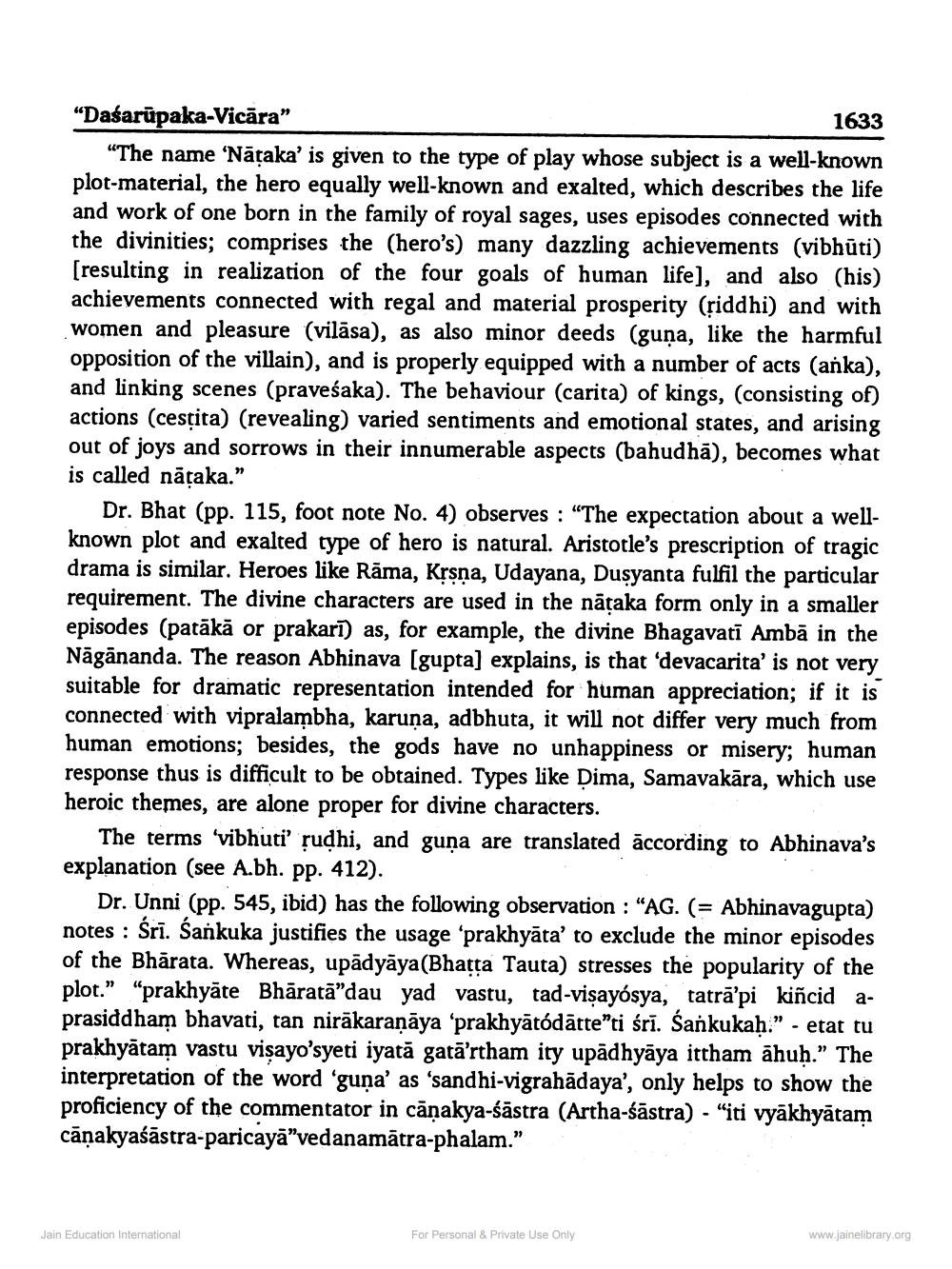________________
“Dasarūpaka-Vicāra”
1633 "The name 'Nāraka' is given to the type of play whose subject is a well-known plot-material, the hero equally well-known and exalted, which describes the life and work of one born in the family of royal sages, uses episodes connected with the divinities; comprises the (hero's) many dazzling achievements (vibhūti) [resulting in realization of the four goals of human life), and also (his) achievements connected with regal and material prosperity (řiddhi) and with women and pleasure (vilāsa), as also minor deeds (guņa, like the harmful opposition of the villain), and is properly equipped with a number of acts (anka), and linking scenes (praveśaka). The behaviour (carita) of kings, consisting of) actions (cesțita) (revealing) varied sentiments and emotional states, and arising out of joys and sorrows in their innumerable aspects (bahudhā), becomes what is called nātaka."
Dr. Bhat (pp. 115, foot note No. 4) observes : “The expectation about a wellknown plot and exalted type of hero is natural. Aristotle's prescription of tragic drama is similar. Heroes like Rāma, Krsna, Udayana, Dusyanta fulfil the particular requirement. The divine characters are used in the nātaka form only in a smaller episodes (patākā or prakarī) as, for example, the divine Bhagavati Ambā in the Nāgānanda. The reason Abhinava (gupta] explains, is that devacarita' is not very suitable for dramatic representation intended for human appreciation; if it is connected with vipralambha, karuna, adbhuta, it will not differ very much from human emotions; besides, the gods have no unhappiness or misery; human response thus is difficult to be obtained. Types like Dima, Samavakāra, which use heroic themes, are alone proper for divine characters.
The terms 'vibhuti rudhi, and guņa are translated according to Abhinava's explanation (see A.bh. pp. 412).
Dr. Unni (pp. 545, ibid) has the following observation : "AG. (= Abhinavagupta) notes : Śrī. Sankuka justifies the usage 'prakhyāta' to exclude the minor episodes of the Bhārata. Whereas, upādyāya(Bhatta Tauta) stresses the popularity of the plot.” “prakhyāte Bhāratā”dau yad vastu, tad-visayósya, tatrā’pi kiñcid aprasiddham bhavati, tan nirākaraṇāya 'prakhyātódātte"ci śrī. Śankukaḥ.” - etat tu prakhyātam vastu visayo'syeti iyatā gatā’rtham ity upādhyāya ittham āhuḥ.” The interpretation of the word 'guna' as 'sandhi-vigrahādaya', only helps to show the proficiency of the commentator in cāņakya-śāstra (Artha-śāstra) - "iti vyākhyātam cāņakyaśāstra-paricayā"vedanamātra-phalam.”
www.jainelibrary.org
For Personal & Private Use Only
Jain Education International




